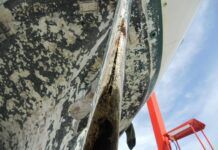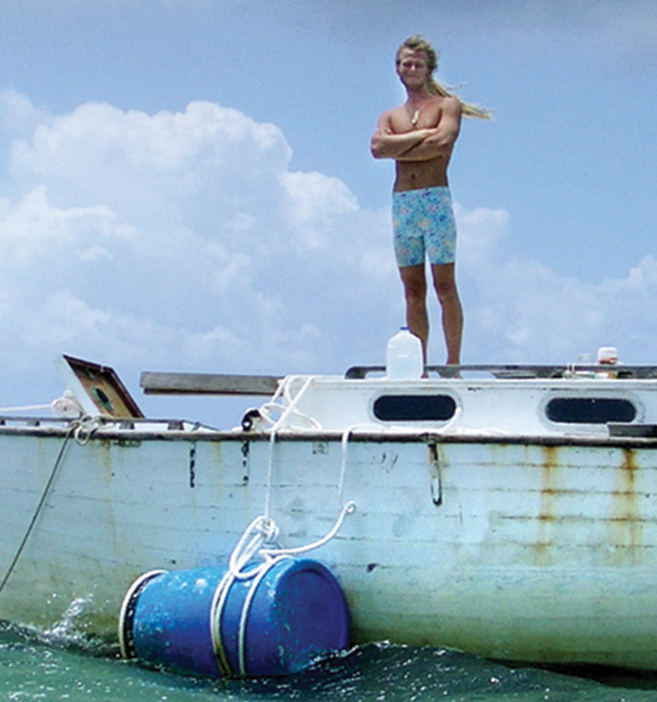The familiar opening sentence to Ford Madox Ford’s classic “The Good Soldier” in the headline above could easily apply to “The Boy Who Fell From Shore,” Charles Doane’s gripping new biography of Thomas Tangveld, the son of sailing legend Peter Tangveld. An enigma to all who knew him, Thomas was presumably lost at sea after setting sail from French Guiana in 2014. He was 37 years old.
Born and raised aboard L’Artemis de Pytheas, the 50-foot boat that his famous father had built in the 1970s in French Guiana, Thomas was the last to see his father and his 7-year-old half-sister, Carmen alive. Both died in the boat’s final voyage—one of four sailing fatalities linked to Peter’s fabled, adventurous, and often reckless life.
The devastating final chapter in Peter’s remarkable voyaging career came in 1991, during a passage from the Virgin Islands to the southern Dutch Antilles, when he mistakenly sailed his boat into the windward shore of Bonaire. It was night, and L’Artemis was towing Thomas in his own 22-foot sloop Spartan. Although Thomas escaped the pounding surf and wreckage, he was forever haunted by the accident.

Many sailors, like me, who encountered Peter shortly before the accident, regarded the tragic event as a predictable outcome when an aging, defiant iconoclast decides to tempt fate one more time.
Doane weaves the tale of Thomas’ post-Bonaire journey with Peter’s own life, which he casts in a sharply critical light. Until now, Peter had carefully shaped his own biography. His first book, Sea Gypsy (1966), is an illustrated travelogue recounting his circumnavigation aboard the 32-foot sloop Dorothea. The story has a picaresque flavor, except in this case the rogue wanderer never reforms. Peter’s second book At Any Cost: Life and Death at Sea (1991) chronicles subsequent voyages and the death at sea of two of Peter’s wives, including Thomas’s mother, who was murdered by pirates in the Sulu Sea.
I met Peter in Boqueron, Puerto Rico in 1990, while he was restitching his jib under a big ceiba tree in the town square. Like many, I admired his skills and fierce independence, but did not fully comprehend the essential role that luck and a string of strong women—seven wives in total—played in keeping the sailor, his family, and his leaky boats afloat.
In this deeply researched biography, Doane sets the record straight, and his tale serves as a sad and solemn reminder to all ocean sailors: There is no limit to human folly, but there is an end to luck.



































